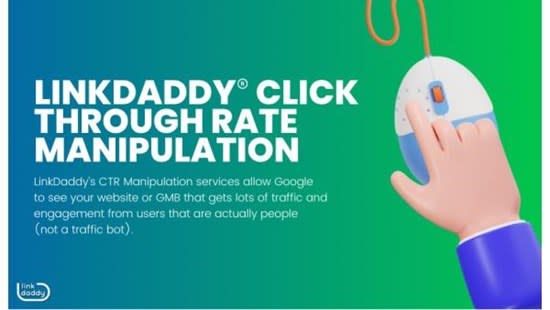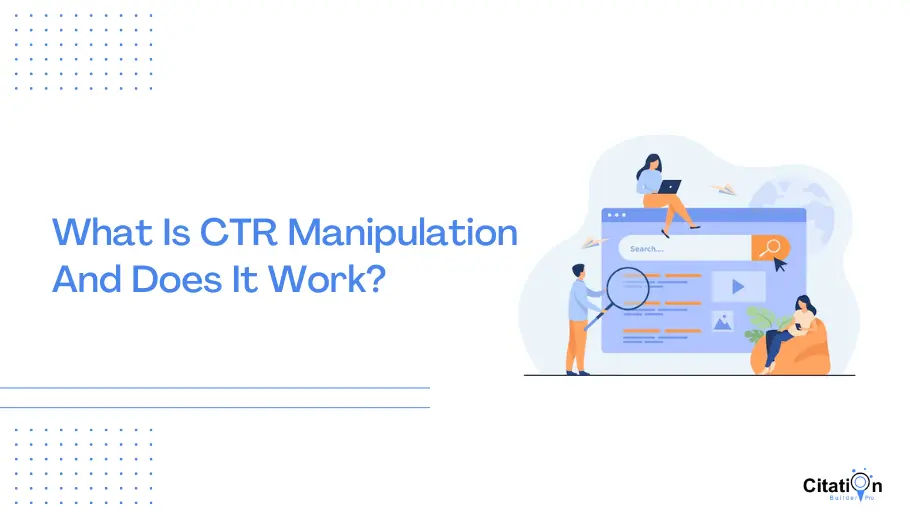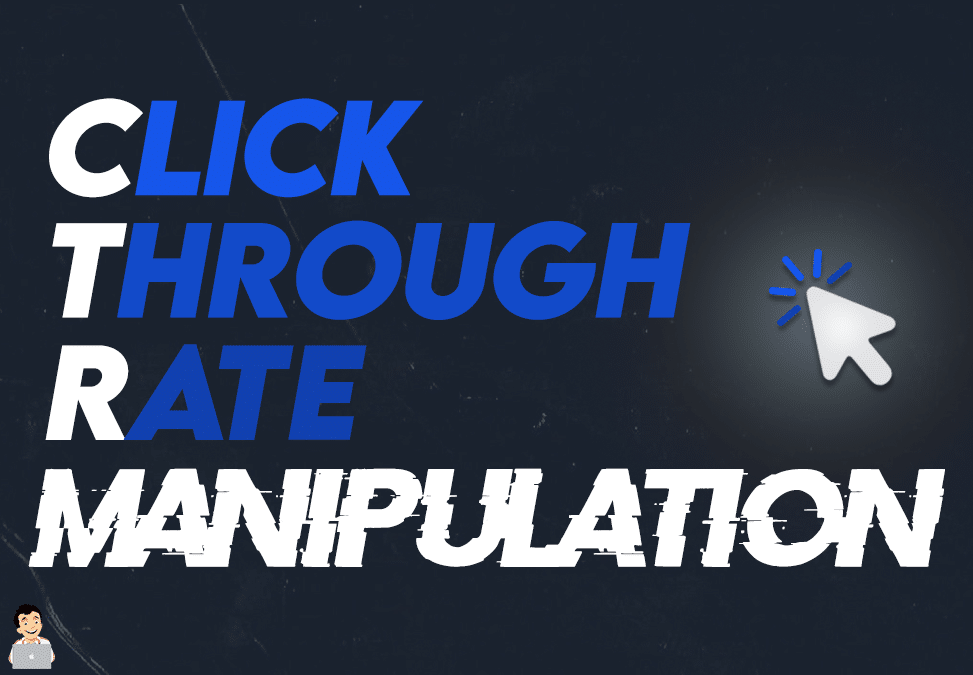Professional CTR Manipulation Service: Enhance Your Online Presence
Professional CTR Manipulation Service: Enhance Your Online Presence
Blog Article
Exploring the Connection Between CTR Adjustment Solutions and User Behavior
In the realm of electronic marketing, the impact of click-through price (CTR) adjustment solutions on customer actions remains a facility and intriguing subject. By dissecting the complex partnership in between CTR adjustment solutions and user habits, intriguing insights arise that may improve our understanding of electronic marketing methods and their impacts on consumers.
Effect of CTR Control on Actions
Assessing the impact of Click-Through Price (CTR) manipulation on user habits discloses important insights right into the dynamics of online interaction. CTR adjustment includes synthetically pumping up the number of clicks on a certain link or ad to deceive individuals and search engines. This technique can cause an altered understanding of a website's appeal or relevance, inevitably influencing user behavior.

Moreover, CTR adjustment can skew the information made use of by algorithms to customize customer experiences. This can lead to individuals being offered web content that does not align with their choices or interests, eventually bring about a decline in individual contentment and engagement. Recognizing the impact of CTR control on individual behavior is crucial for maintaining transparency and count on on the internet communications.
Individual Engagement With Controlled CTR
Individual engagement with controlled CTR information usually brings about skewed understandings of on-line web content appeal and relevance. When customers communicate with material based on synthetically inflated Click-Through Rates (CTR), they may think that certain information, items, or services are more popular or trustworthy than they actually are. This can result in users choosing based upon misleading data, causing possibly undesirable results.
Interaction metrics like likes, shares, comments, and time invested in a web page are usually affected by CTR control. Customers might be extra likely to engage with web content that shows up to have greater interaction rates, further bolstering the cycle of manipulated assumptions. Therefore, material developers and advertisers may prioritize creating web content that produces high CTR rather than concentrating on creating truly beneficial and pertinent material.

Psychological Results of CTR Manipulation

Additionally, the mental effects of CTR adjustment can additionally materialize in altered decision-making processes. Users might be a lot more inclined to click material entirely based on its regarded appeal, rather than its real worth or significance to their needs. This behavior change can result in a surface interaction with online web content, where individuals may forget high-grade however much less prominent offerings for those with unnaturally increased CTRs.
Fundamentally, the psychological ramifications of CTR adjustment highlight the value of maintaining openness and authenticity in on the internet interactions to cultivate genuine customer engagement and trust fund.
Ethical Considerations in CTR Adjustment
CTR adjustment elevates problems concerning tricking customers, misshaping information analytics, and jeopardizing the reputation of online web content. By unnaturally blowing up CTR, individuals might be misinformed right into clicking on links or ads they would not have chosen otherwise, leading to an insincere online experience.
Another ethical aspect to ponder is the justness of manipulating CTR to gain an unreasonable benefit over competitors. Participating in such practices not just breaches principles of fair play yet additionally weakens the count on that customers position in on the internet platforms. It is essential for organizations and electronic marketers to promote honest standards in their methods to guarantee openness, integrity, and long-lasting sustainability in the online setting.
Effects for Digital Advertising And Marketing
With the increasing dependence on digital systems for advertising purposes, the technique of controling click-through prices (CTR) poses considerable implications for the efficiency and stability of digital advertising and marketing methods. CTR adjustment can bring about skewed information analytics, misinforming marketers into thinking that their projects are carrying out far better than they actually are. This can cause misallocation of sources, with companies spending in underperforming techniques based upon falsified CTRs. Furthermore, when customers understand that CTRs have actually been manipulated, it can wear down trust in the brand, bring about long-lasting adverse consequences for consumer commitment and brand name track record.
Furthermore, making use of CTR control services can create an unjust competitive landscape, where companies that participate in such methods acquire a synthetic benefit over those that follow moral advertising and marketing requirements. This can stifle development and creativity in digital advertising and marketing, as success comes to be even more regarding control strategies than delivering genuine worth to customers. Eventually, the implications of CTR adjustment for electronic advertising prolong beyond short-term gains, affecting the general sustainability and integrity of advertising efforts in the electronic realm.
Conclusion
In verdict, the connection in between CTR control services and customer behavior is intricate and multifaceted. The influence of CTR adjustment on actions, user engagement with visit this page adjusted CTR, psychological effects, honest considerations, and effects for digital advertising and marketing all contribute fit this connection. Understanding these characteristics is important for online marketers and scientists alike in order to browse the moral implications and make the most Full Report of the performance of their digital advertising and marketing strategies.
Report this page